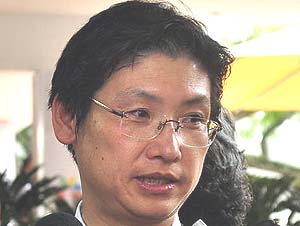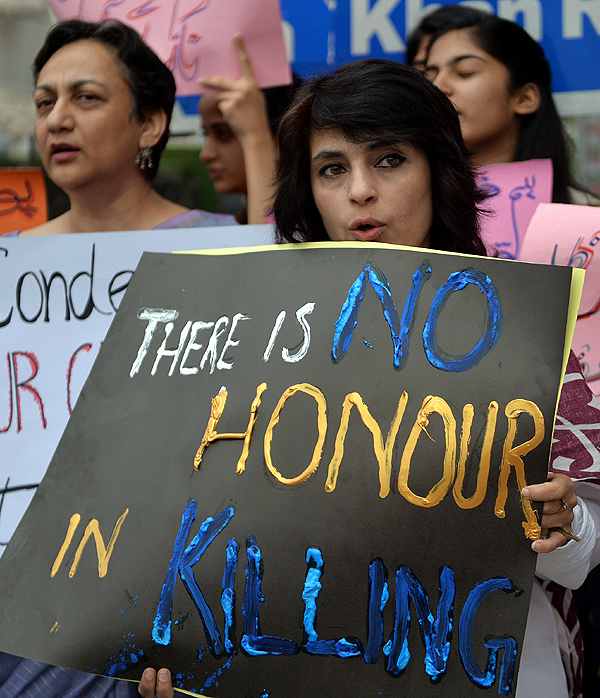“Treaty with U.S. is backbone of our defense” – Says Japan’s Foreign Affairs Minister
Saturday, April 26th, 2014 6:50:19 by Khalil Khan
Kenta Wakabayashi, 50, is Deputy Minister of Foreign Affairs of Japan. Soft-spoken and concise answers, highlights the importance of the state visit to Japan that started Wednesday U.S. President Barack Obama, with an informal dinner with Prime Minister Shinzo Abe. ” The Security Treaty between the United States and Japan is the backbone of our defense policy,” he said at a meeting of the Diet (parliament) in Tokyo. It also reviews the relations with China, which he described as Japan and Asia hazard. Wakabayashi, Liberal Democratic Party, a member of the House of Councillors (Upper House), one of the two houses that make up the diet. The other is the House of Representatives (lower house).
Question. What Japan expects the visit of U.S. President Barack Obama?
Response. The relationship with the United States is very important for Japan because the Security Treaty between the United States and Japan is the backbone of our defense. We had requested the visit of President Obama in a long time, and we are pleased that eventually occurs. On one side are the negotiations for the TPP (stands for Strategic Agreement Trans- Pacific Partnership, which includes 12 countries), and, second, security issues, such as Futenma base (in Okinawa). But we have to wait to see if great strides are produced during the visit.
Q. What are the main obstacles to the signing of the Agreement Trans- Pacific Strategic Economic Partnership (TPP)?
R. United States and Japan account for 80% of the gross domestic product of TPP, so the summit between the two countries largely affect the fate of the TPP. There have been many issues between the countries involved, but most have reached an agreement and have reached the point at which tariffs must agree. What we are discussing Japan and the United States is how to resolve this problem tariffs.
Q. Are the access of agricultural products to the Japanese market and the automotive sector the main sticking points?
R. With respect to automobiles, Japan is on the strong side. United States should open. But President Obama is the Democratic Party, and has great support from the unions of the automotive industry, so I can not give in this field. In agriculture, it is difficult for Japan agreement.
Q. What do you think of the change in defense policy driven by the prime minister, Shinzo Abe?
A. Actually this is not what the Abe Cabinet ‘s doing, but that the Democratic Liberal Party, when he was not in power, discussed and shaped these national security policies, and won the election (in December, 2012) to submit these plans. So we are now translating these plans, which include the right to collective self-defense.
Q. Why change the role of Japan’s Self Defense Forces?
R. The international situation has changed a lot. America has gone from being the world’s police force to gradually look inside their own country. Since the end of the Cold War, the world has become increasingly multipolar. So we think that the situations related to national security have changed too much. Of course the Security Treaty between the United States and Japan is the basic guideline, but the responsibility for Japan is increasing.
Q. Is this also the reason that the military budget has increased, for example, improve the defense of the islands (disputed with China) and buy more weapons?
A. The budget had decreased long, so we decided to attribute enough.
Q. I need to change Article 9 of the Constitution (peace imposed by the United States in 1947, according to which Japan renounced war to solve any dispute and the role of the armed forces was limited to self-defense)?
R. The Liberal Democratic Party is in favor of changing the constitution. When we were still in power, we create a draft of the revised constitution, and we all feel we want to change this revised Constitution. But, on the other hand, we feel there are certain achievements resulting from the pacifist Japan ‘s international relations after the Second World War, and we have included this idea in our plan review. So now we have an idea of ??limited right to collective self-defense.
Q. Do you have a schedule to change the Constitution?
A. Unfortunately, the current procedure for revising the Constitution is very limited, we can not start it with the number of seats we have.
Q. What role should the U.S. play in the defense of Japan?
A. The Security Treaty between the United States and Japan is very important for the security of Japan but also contributes greatly to the security of Asia. I think this size will not change. The U.S. military and Japan Self-Defense Forces participate in joint operations, and this will not change.
P. The plan of national security strategy unveiled last December specifically cites the great concern of Japan by the Chinese military buildup. Why?
R. We consider the growth of China military a threat to Japan, but we think it is a danger for other Asian countries. Prime Minister Shinzo Abe, has confirmed at their summits with leaders of other countries that they share the common recognition that China is a threat to all countries in Asia. In Asia, we also have North Korea, but China is significantly increasing its military power, and may be greater than the figures do reflect public. It is not just the Senkaku islands (Tokyo and Beijing jostle, who calls Diaoyu) also attempts to change the status quo in the Philippines and other countries in the region by force, and this is a great danger.
P. Japan and China have been playing cat and mouse with the continuous delivery of ships and aircraft in the Senkaku / Diaoyu islands. How long will this situation continue?
R. Initially, China never showed interest in the Senkaku Islands. He started bragging rights after learning he had energy resources on the islands. This means that unless China loses interest in these rights, the current situation will not change. As for us, the Senkaku have always been part of our territory and in no way yield to the demands of China.
P. Relations between China and Japan have traditionally been difficult. How should manage them in the future?
R. From the political point of view, there are difficult problems. But when it comes to the economy, China is the largest trading partner of Japan, so in this sense, it may be better to build the basis of our relationship through trade or cultural exchanges and private. With regard to politics, there is no advantage for either of the two countries in the conflict, and both probably know. Someday the situation will distend.
P. China and South Korea reacted angrily when Shinzo Abe government or members visit Yasukuni Shrine (Beijing and Seoul see as a symbol of Japan’s imperialist past). Why go to the sanctuary?
R. Visit to Yasukuni Shrine is a personal and religious issue, to show respect for the fallen in war. I have also visited (on Tuesday this week, during the festival of spring). It’s a habit. China said nothing about this right after the war. At one point, he began to use many diplomatic letters. Now uses this in its diplomatic negotiations, and I feel very sorry for this. We think it is not a matter of any foreign country that it tradition to show respect to the spirit of the dead in the war. But there is a problem. In the past, the Cabinet (Yasuhiro) Nakasone (prime minister between 1982 and 1987) collectively revered war criminals in Yasukuni first order. United States also considers this problem. There is an important point in that, and among my colleagues who visit the sanctuary there are those who think that the war criminals of the first order should be revered apart. I think so too.
Short URL: https://www.newspakistan.pk/?p=43250

















